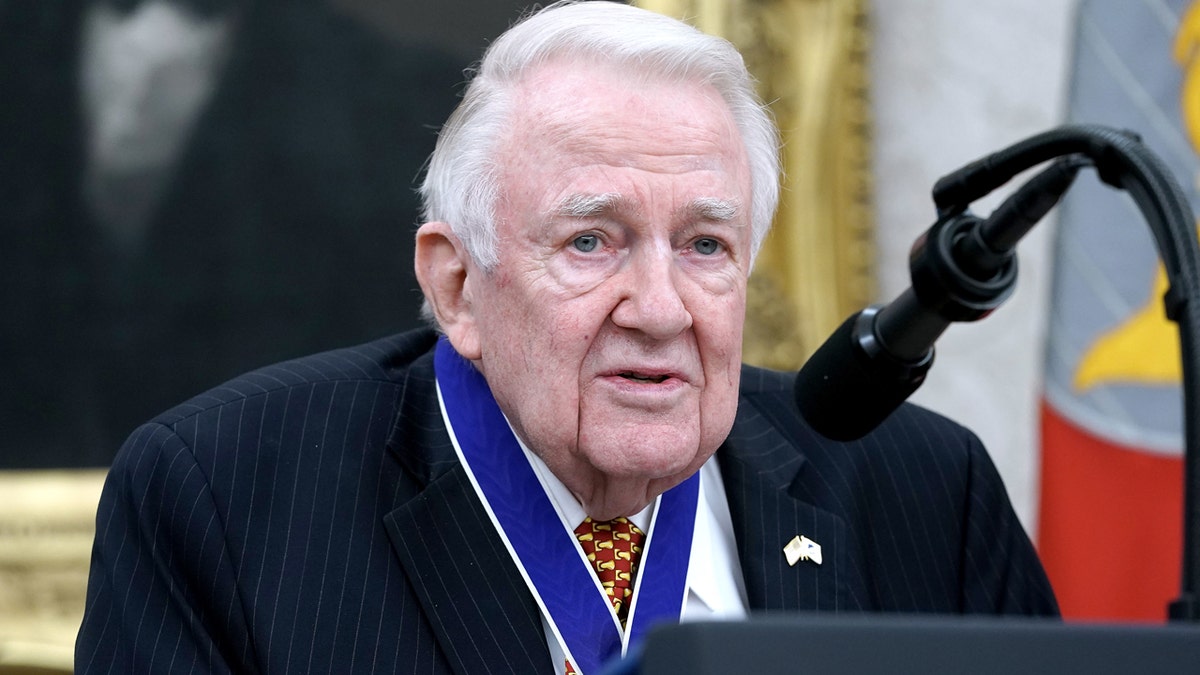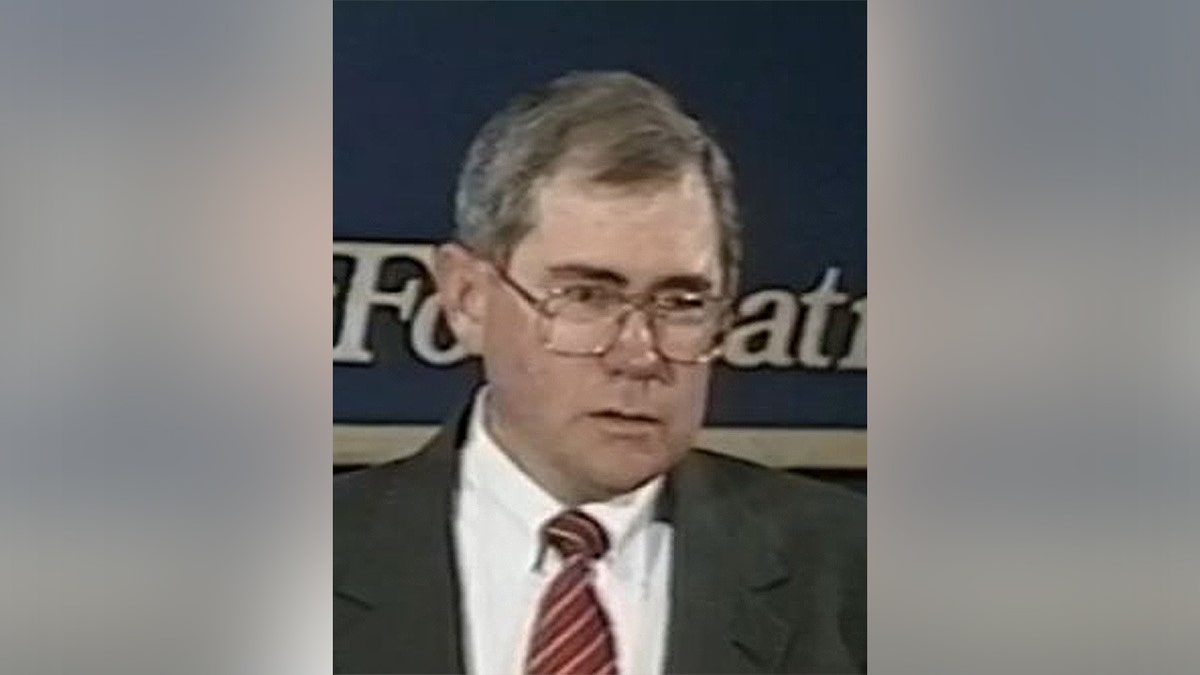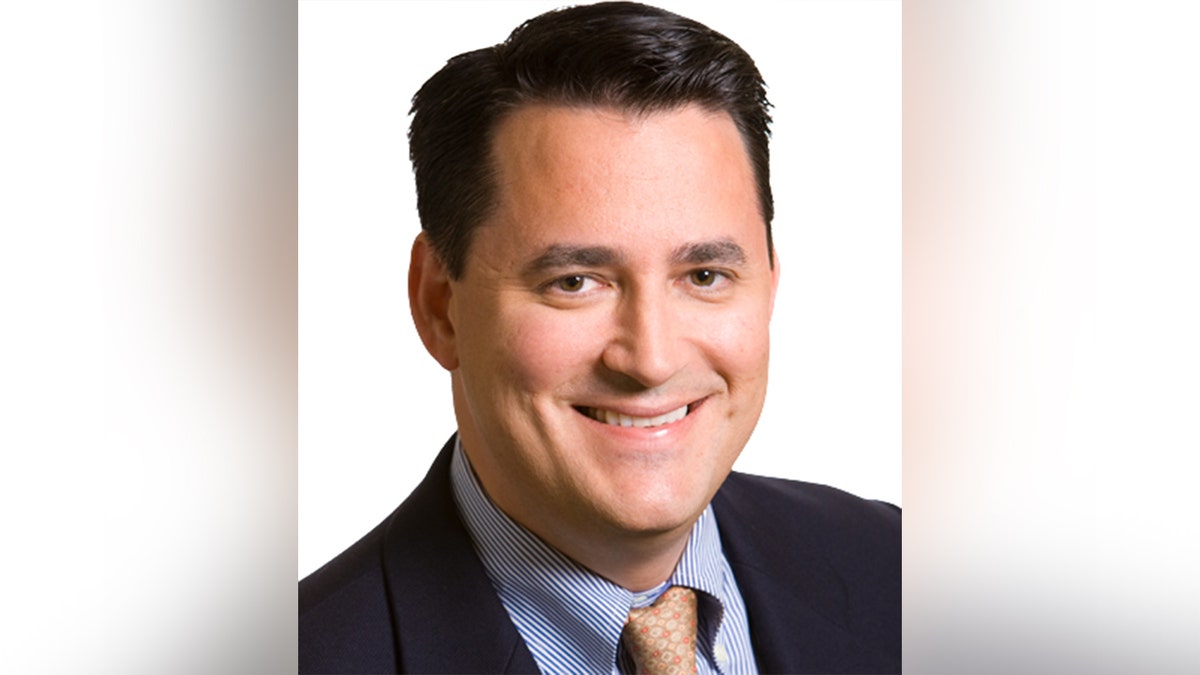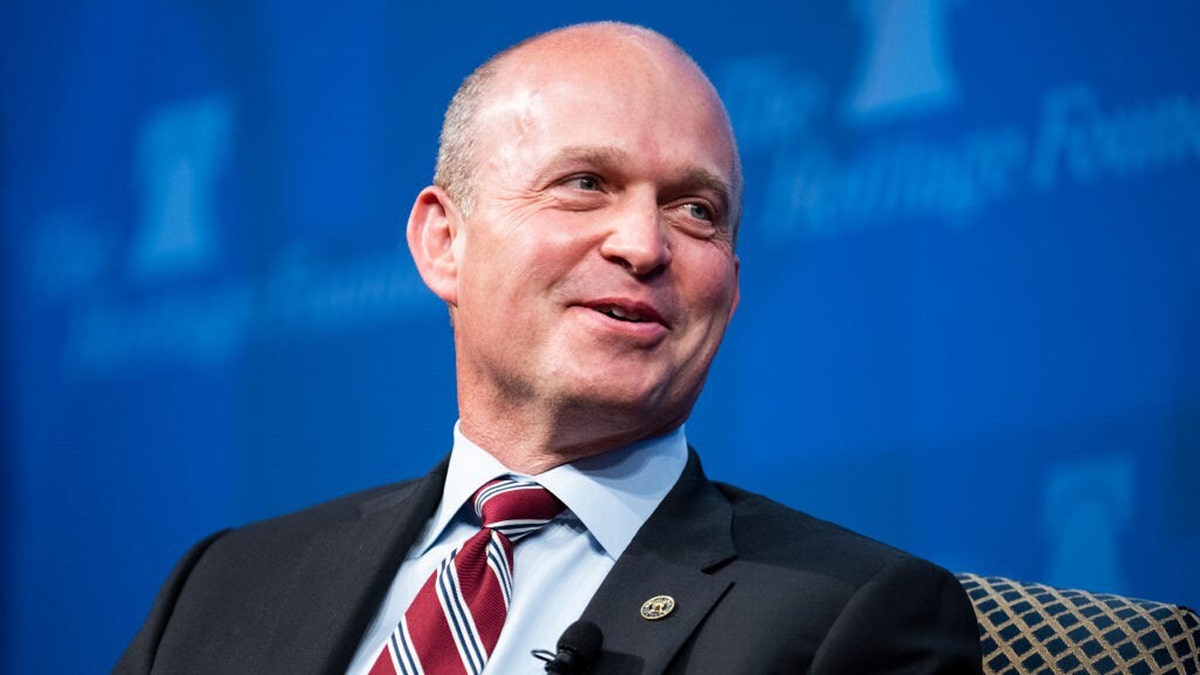Congressman Chip Roy: Project 2025 will undo "damage of a lawless, tyrannical Biden regime" | Will Cain Show
Will Cain shares how Project 2025 is the Left's latest boogeyman. Congressman Chip Roy adds that it's nothing more than a series of plans and actions to help undo the "damage of a lawless, tyrannical Biden regime."
While the Heritage Foundation’s latest Mandate for Leadership and its overarching Project 2025 have been turned into a right-wing-‘boogeyman’ style Democratic talking point and fodder for Trump critics, its founders and current leaders maintain that its work product past and present speak for itself.
President Donald Trump has also criticized the latest iteration and denied any involvement in its formation: "I disagree with some of the things they’re saying, and some of the things they’re saying are absolutely ridiculous and abysmal," Trump said last month.
From the Reagan administration through the present, the Heritage Foundation has published its Mandate for Leadership series almost every election cycle.
However, project leaders, including former Attorney General Edwin Meese III, who is now considered the preeminent "elder statesman" of the conservative movement, contend there is nothing radical about the endeavor.
In an interview on Wednesday, Meese said the major difference between 1980 and 2024 is that the mechanics of the project have changed.
"In the first one, in 1981, it was much more organizational, with information on structure and organizational norms, where – later on in 1989 – it was much more individual policy issues-based," he said.

Former Attorney General Edwin Meese delivers remarks after being awarded the National Medal of Freedom by President Donald Trump during a ceremony in the Oval Office at the White House on October 8, 2019. (Chip Somodevilla/Getty Images)
After then-President-elect Reagan named Meese director of his transition team, Meese recalled being invited to a dinner with members of the Heritage Foundation and other conservatives and being offered early proofs of the 1981 Mandate for Leadership itself.
Charles Heatherly, who worked on the first project during the 1980 cycle, said on Thursday that the Carter crew had been approached to discuss the initiative – appearing to debunk present-day claims the projects have been one-sided partisan affairs.
"Both the Reagan campaign and the Carter campaign were invited to send a representative to that dinner. The Carter campaign never responded," he said.
Meanwhile, Meese said the 1981 project had been "particularly helpful" in the Reagan years, because nothing of the sort had been done in a long time.
"Years ago, there had been a coalition, I think, during the Johnson administration. That was quite some time before 1980. And, so it was really time [for this project]. . . ."
"It was a really great effort [Heritage] made. They recruited authors who knew the [policy] topics because they had actually worked in those departments or in other [areas], which gave them the opportunity for knowledge about how the rest of the government worked."
"And each department or agency had a chapter in the book. It was about 500 some-odd pages, I remember. And so I was very much impressed with what had happened."
Meese recalled telling Reagan about the new project and said the California Republican had been immediately eager to view the final product.
"Reagan was so impressed that he had a meeting of his cabinet before the inauguration. And he put a copy of the book at every person's desk."
GREEN GOVERNANCE THE NEW GUISE FOR MERCANTILISM, EXPERT SAYS; WILL LEAD TO GLOBAL INSTABILITY

Charles "Chuck" Heatherly (Thetaylorboyer, CC BY-SA 4.0, via Wikimedia Commons)
The meeting was held in the State Department’s conference center, and each secretary was told to "find your chapter," Meese said.
From that point on, what had started as a meeting of conservative experts began to have a positive effect on the efficiency and policymaking within the new conservative White House.
One excerpt reported by UPI recommended against affirmative action, in that the new 1981 administration should "base its civil rights policy on the notion that every person has an inherent right to obtain whatever economic or other rewards he or she has earned, by virtue of merit, and that it is inherently wrong to penalize those who have earned their reward by giving preferential treatment and benefits to those who have not."
As for how the Reagan administration utilized the first project’s work, Heatherly said the then-president’s political appointees were a "mixed bag," which led to differences in consideration.
"Some agencies took it more seriously than others," he said.
Heatherly also pointed to his recent Wall Street Journal column defending the project then and now:
He said he had recruited 20 teams of experts from previous White Houses, academic institutions and within then-fledgling Heritage itself.
The 1980 cycle’s book project went on to make the Washington Post’s bestseller list for three weeks, he added.
Steve Groves served as an assistant special counsel in the Trump administration while the president was being probed by former FBI Director Bob Mueller.
He is also the co-editor of this term’s Mandate for Leadership – the policy book portion of Project 2025.
Groves pushed back on the idea that Project 2025 or its book were intentionally geared toward Trump.
FORMER ATTORNEYS GENERAL URGE ABC TO ASK SPECIFIC QUESTIONS ABOUT SUPREME COURT

Steve Groves (The Heritage Foundation)
"It’s just a lot of sloppy journalism," he said. "Most [journalists] don’t chase the facts to get them right."
Groves said after Biden politically collapsed in the June debate, mentions of Project 2025 in the media "spiked through the roof."
He said it was evidence that the media-liberal-political coalition needed a new narrative, which was to make the Mandate for Leadership into an "insane document." Groves said that many of the allegations, such as demands for the next president to outlaw abortion and end birthright citizenship, were entirely false.
"They just wanted to change the subject," he said.
"[The idea] it’s Trump’s project is a lie," Groves added, pointing to the fact the anthology came out in 2023 and had been crafted in 2022 when the presidential election was anyone’s game.
Groves and Heritage Foundation President Kevin Roberts echoed each other's sentiments in that regard, as Groves noted that many of the chapters in this year’s work do not present a singular ideological viewpoint.
Regarding trade policy in particular, conservatives hold divergent views that both fall under the proverbial "big tent" on the right.
As Groves noted, Trump ally Peter Navarro – who would be considered a "fair trade" proponent – and the CEO of the pro-"free-trade" Competitive Enterprise Institute, Kent Lassman, co-authored that chapter.
Groves said Lassman’s purview more closely aligns with Heritage’s longstanding platform – but that Navarro’s inclusion further deconstructs allegations the project is a pro-Trump, far-right piece of propaganda.
For his part, Roberts suggested that situations like the above are what sets Heritage and Project 2025 apart from actual partisan policymaking endeavors.
In the 2024 cycle, he said, Heritage offered Project 2025 materials to every candidate or prospective candidate in the 2022-2023 timeframe, including Biden, Trump, former South Carolina Gov. Nikki Haley and Robert F. Kennedy, Jr.
"President Biden did not respond, but if he responded, I would have personally gone over to the White House very happily, not sarcastically, and offered him a briefing," Roberts said.
"On the origins of the mandate, it's always been the case that we offer it to any presidential candidate who is interested in a briefing. I mean, we offer congressional briefings to Democrats. Of course, here in Washington, fewer and fewer over the years have taken us up on that. But maybe one day we can see that happen again."
Roberts said that another misconception is that Heritage has issued the same type of "project" every election cycle. In two ways, he said, that claim is flawed.
One, in elections like 2004, there was no reason to completely rewrite the manual for conservatism for either George W. Bush or then-Sen. John Kerry, D-Mass., because a Bush re-election would have represented policy continuity.
Spencer Chretien, a Project 2025 associate director, said at the project's inception that conservatism has also changed in the time since the 1980 election. Conservatives used to oppose things like the 1975 "Church Committee" – a congressional panel led by then-Sen. Frank Church, D-Idaho, examining the inner workings and "abuses" of the intelligence community.
Church's committee might now be welcomed by conservatives, who have grown weary of the left's embrace of the "government's vast power." No longer do many conservatives see the Church Committee as a "kooky leftist attack" against brave public servants, as they now themselves seek accountability for the actions of unelected bureaucrats there, he said.
Project 2025 is in other ways more like the original 1980-81 iteration, Roberts argued, in that it represents a consortium of sometimes-conflicting viewpoints that all fall within the conservative realm rather than a singular Heritage-viewpoint-based policy document.
CLICK HERE TO GET THE FOX NEWS APP

Heritage Foundation President Dr. Kevin Roberts (Getty)
Roberts also spoke to right-wing concerns about the project, including the high-profile condemnation from Trump – as many of the authors of Project 2025, like Navarro, were former administration officials, while others like Lassman were not.
"This speaks to the heart of the project," Roberts said. "The project is really candidate-agnostic – so it’s been interesting to see commentary ranging from ‘This is specific to Trump’ to ‘It's not specific to Trump enough."
"That actually underscores the point about how serious we are about it being candidate-agnostic. It's important, obviously, given our IRS designation, but more importantly, our own ethics of the thing as it relates to Mr. Trump's distancing of his campaign from it. That's totally understandable."
Roberts noted how the media have turned Project 2025 into a "boogeyman." When Americans of all stripes are told exactly what is in the project, they’re more amenable to it than any critic claims they should be.
The Heritage leader also dispelled rumors that the July departure of co-editor Paul Dans had anything to do with Trump’s comments or the media’s condemnations. Dans’ work had ended, and he had moved on to other projects, Roberts said.
He also added that, just like when Heritage presented the first project to Meese and Reagan, there remains no presumption that a candidate – conservative or not – will implement it.
"It's the kind of work that Heritage does all the time. Our honest response about Trump's reaction to it: We're gratified to see that it looks like a lot of that has calmed down," he said.
"We want to wake up in a normal country. We want to wake up in a country where the American dream is alive. That's what this project is about."













































